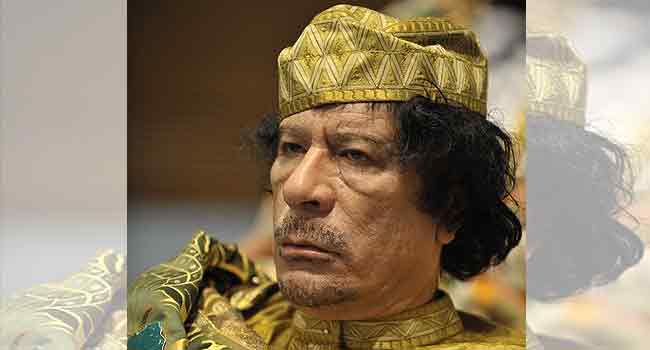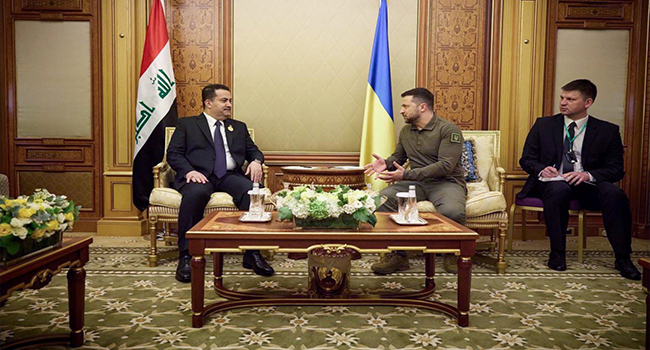
With international talks on Libya to be held in Paris on Friday, here is a timeline of the oil-rich country gripped by chaos since dictator Moamer Kadhafi’s ouster a decade ago.
2011: Kadhafi killed
Encouraged by Arab Spring uprisings in Tunisia and Egypt, protests erupt in Libya in February 2011.
The United States, France and Britain give military backing to what becomes an armed revolt in the North African country.
Kadhafi, in power for 42 years, flees the capital but rebels capture and kill him on October 20.
In August 2012, the rebels hand power to a transitional authority, the General National Congress (GNC).
2012: Foreign missions targeted
US ambassador Chris Stevens and three American staff are killed in a September 11, 2012 attack on their consulate in Libya’s second city, Benghazi. An Al-Qaeda-linked jihadist group is blamed.
A car bomb in April 2013 targets France’s Tripoli embassy, wounding two French guards.
Most foreign diplomats leave the country.
2014-2016: Rival administrations
Eastern strongman Khalifa Haftar launches an offensive in May 2014 against jihadist groups in Benghazi. He names his forces the Libyan National Army, and several senior officers from the east join him.
Legislative polls are held in June, producing a lower house of parliament — the House of Representatives — dominated by anti-Islamists.
But Islamist-led militias contest the results and storm Tripoli in August, restoring the GNC to power.
The internationally recognised House of Representatives takes refuge in the eastern city of Tobruk. A rival body equivalent of Libya’s senate and formally known as the High Council of State is established in Tripoli in the west.
Libya thus finds itself with two administrations and two parliaments.
In December 2015, after months of talks and international pressure, the rival parliaments sign an accord in Morocco establishing a Government of National Accord.
In March 2016, its chief Fayez al-Sarraj arrives in Tripoli to install the new administration, but Haftar refuses to recognise it.
2019: Haftar’s offensives
Haftar announces the “total liberation” of Benghazi from jihadists in July 2017, after more than three years of fighting.
He is backed by neighbouring Egypt and the United Arab Emirates, later also forming links with Russia.
In January 2019, Haftar launches an offensive into oil-rich southern Libya, seizing the region’s capital, Sebha, and one of the country’s main oil fields.
In April, he orders his troops to advance on Tripoli.
In June 2020, Tripoli’s forces say they have overrun Haftar’s last western stronghold.
2020-2021: Talks and Tensions
The rival administrations sign a “permanent” ceasefire agreement in October after UN-hosted talks in Geneva. The following month in Tunis they agree to hold parliamentary and presidential elections in December 2021.
Libyan delegates to the UN process approve a unity government headed by interim prime minister Abdulhamid Dbeibah in March 2021, charging it with leading the country to the elections.
But the United Nations warns in July of a “stalemate” over political and security plans and Dbeibah’s proposed budget.
In October, the eastern-based parliament adopts a law governing the legislative elections, following the ratification of a text governing the presidential poll that critics say favours Haftar.
Libya’s senate in Tripoli contests both laws.
Election Wrangling
The parliament in Tobruk rubber stamps the presidential poll for December 24 but postpones the legislative elections to January.
On November 6, with the Paris international conference on the horizon to make sure the elections go ahead, the presidential council suspends Foreign Minister Najla al-Mangoush for “administrative breeches”.
Two days later, registration for election candidates begins.
AFP




